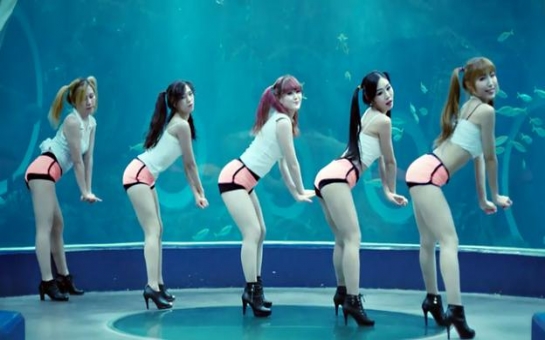On 18 May, life changed forever for a 17-year-old boy from Essex, England, named Martin James Bartlett. At Edinburgh’s historic Usher Hall, he gave a performance of Rachmaninov’s Rhapsody on a Theme of Paganini of astonishing virtuosity and musicality, and was duly crowned BBC Young Musician 2014. Martin now follows in the footsteps of such acclaimed international artists as pianist Freddy Kempf, cellist Guy Johnston and violinist Nicola Benedetti.I feel lucky to have been able to watch the rise of such inspiring British teenagers as Martin, and his predecessors Laura Van Der Heijden (cello) and Lara Melda (piano). There are few subjects about which I am more passionate than opening up the art form I adore, and nothing frustrates me more than the irony that it is the supposed lovers of classical music who are the ones who guard it most closely, maintaining the fiction that there are barriers to entry.But the competition gives me renewed hope about that vexing subject of classical music and its supposed lack of relevance to a younger audience. It smashes the myth that the only young people who are into it are weird super-nerds who bear no resemblance to normal teenagers – and that the only way to get the young excited about classical is through gimmicks like a viral video of women twerking to Dvořák or a Colorado orchestra allowing its audience to smoke marijuana at a concert. Martin is charismatic, quirky and wickedly funny. He’s charming. He’s cool. And not only will he have a huge career as a concert pianist, but the combination of his staggering artistry and personal appeal will inspire anyone who hears him, old or young.So let’s just hope he will be heard by a whole new generation. This is not the place to debate budget cuts, public subsidy and music education policy in the UK or elsewhere; but it’s self-evident that the more exposure people have to classical music from a young age as something normal, the more likely they will start to hear it as that – just another form of music to be discovered, enjoyed, participated in, shared. Even the briefest analysis of music education in places like Finland and Venezuela substantiates that: in the latter, classical music is as much part of the cultural oxygen as tango or salsa; the coolest cats in the barrios are the ones with their instrument cases on their backs.Classical coolAll music is made from the same building blocks, the same essential DNA. Despite what the aficionados would have you believe, all you need to enjoy classical music is curiosity and ears, not a musicology PhD. That’s why classical is so often used to such powerful effect in movies, TV shows and advertisements. I recently attended Google’s Create conference with internet sensation Casey Neistat and was tickled that he chose Vivaldi’s Four Seasons – admittedly re-mixed – as the soundtrack to his now legendary New York Bike Lanes video. I doubt any of the 11 million people who have watched it feel alienated by the soundtrack! In my opinion, it makes the film.As gloomy as the picture is often painted to be, there’s a lot to be optimistic about when it comes to hearing classical music in non-classical contexts, which has to be part of the battle to making it feel less ‘weird’. I’m cheered by Spotify’s commitment to build and help users navigate their impressive classical collection; why initiatives like the classical programme at Le Poisson Rouge in New York, or Decca’s classical club night Yellow Lounge are exciting; why last year’s BBC 6 Music and Urban Classic Proms were so inspired; and why I’m looking forward to seeing and hearing what goes down at this summer’s Proms with the likes of Paloma Faith, Rufus Wainwright and Gabriel Prokofiev, the DJ and genre-busting grandson of Sergei Prokofiev, whose new violin concerto will receive its world premiere.It’s also why I was excited that Clean Bandit’s song Rather Be went to No 1 in the UK, trumping Pharrell Williams’ infectious and ubiquitous anthem Happy in the process. The band started as a regular string quartet, before adding electronic beats over their classical strains. In a recent interview with the Tate they admitted how “rewarding” it was that they are able to “generate audiences of several hundred 20-year-olds who would not normally listen to Mozart”. They added, “We do get a lot of tweets about people taking up the violin or cello, which is cool!”Not that everything is quite so reconstructed. The Belgian classical festival B-Classic’s Classical Comeback project reminds us that we still have a long, long way to go. While I roundly applaud their objective to “give classical music the same recognition as pop and rock music”, and am certainly no prude, I’m just not convinced that filming a group of young women twerking their way through 3 minutes of Dvořák's 9th Symphony is the way to achieve this. Maybe I’ll be proved wrong?(BBC)Bakudaily.az
Getting hooked on classical
Culture
09:30 | 05.06.2014

Getting hooked on classical
Promoters of classical music are adopting unorthodox methods to attract young people. But this needn’t be the case, says Clemency Burton-Hill.
Follow us !










